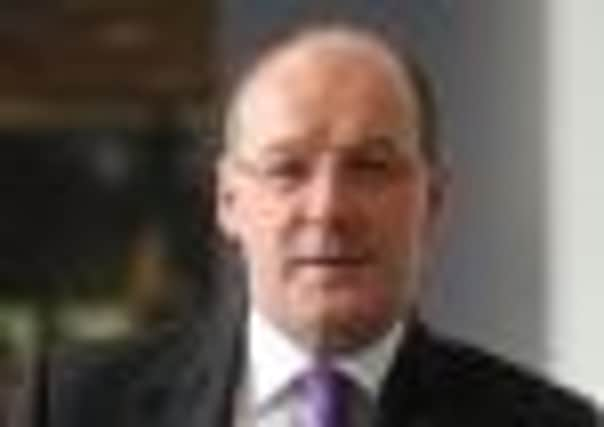Chancellor’s tax cap ‘may turn people off charitable giving’, says John Swinney


Swinney added his voice to the UK-wide clamour of protest, saying he had written to George Osborne yesterday to underline the risks of the controversial plan to limit the tax breaks wealthy individuals can get when they give large sums to charity.
Swinney’s strongly-worded intervention follows stinging criticism of the Chancellor’s policy from some of Scotland’s most generous philanthropists, including billionaire Sir Tom Hunter, oil tycoon Sir Ian Wood and Glaswegian entrepreneur Willie Haughey.
Advertisement
Hide AdAdvertisement
Hide AdIn his letter, the SNP’s finance secretary pointed out that figures produced by the Scottish Council for Voluntary Organisations suggest that voluntary grants and donations accounted for 10.7 per cent of Scotland’s third sector income – the equivalent to £470 million in 2010. Yesterday, he said: “The Scottish Government recognises the valuable contribution charities make to Scottish society and we fully support the work of the charitable sector in Scotland.”
Under the new tax arrangement, which was announced by Osborne in his recent Budget and will come into force next year, the total amount of tax relief any individual can claim will be limited to 25 per cent of their income or £50,000, whichever is larger.
The Chancellor has argued that the policy is necessary to weed out those who avoid tax by funnelling income through charities, sometimes set up in their own names, that donate little to good causes.
But Swinney’s letter said: “Whilst I fully support the need to ensure wealthy individuals do not avoid their tax obligations, I believe that, as they currently stand, your proposals will damage the third sector in Scotland (and indeed elsewhere) by reducing the number and level of charitable and philanthropic donations.”
He added: “Philanthropic giving is seen as an increasingly important element in funding Scottish universities.”
The principals of five Scottish universities, Gordon Rintoul, director of the National Museums Scotland, and John Leighton, the director-general of the National Galleries of Scotland, have urged UK ministers to abandon the plan.
Swinney’s intervention was welcomed by Scottish charitable organisations. Yesterday, John Downie of the SCVO said: “Basically, George Osborne is equating charitable giving with tax avoidance. The UK government is trying to promote a Big Society, but this is stopping people giving to charity.
“The UK gets £11 billion in charitable donations per year and 50 per cent of that money comes from 8 per cent of the donors. So there is a very small amount of people giving massive amounts.
Advertisement
Hide AdAdvertisement
Hide Ad“It is people like JK Rowling donating to medical research, Willie Haughey donating to the skills sector and Sir Tom Hunter [who runs a charitable foundation].”
Oxfam said it “fully expected” the change to affect its income, warning that “significant gifts” from major donors were vital for many charities across the UK. The charity’s finance director, Bob Humphreys, said: “We know from speaking to our high-level supporters that the tax relief cut will certainly influence their thinking and potentially affect their donations.”
Greg McCracken, policy officer at Age Scotland, said: “We feel that this flies in the face of the whole notion of the philanthropic society that the government has done so much to try to encourage at a time when budgets are being slashed …we believe it has the potential to turn people off the idea of charitable giving.”
A Treasury spokesperson said: “The government does not think that it is right that very wealthy individuals can use tax reliefs without limit to reduce their tax bills to close to zero, often year after year.
“We support charitable giving and the vast majority of donations will be completely unaffected. We are working with philanthropists and charities to limit the impact on those charities that rely on large donations.”